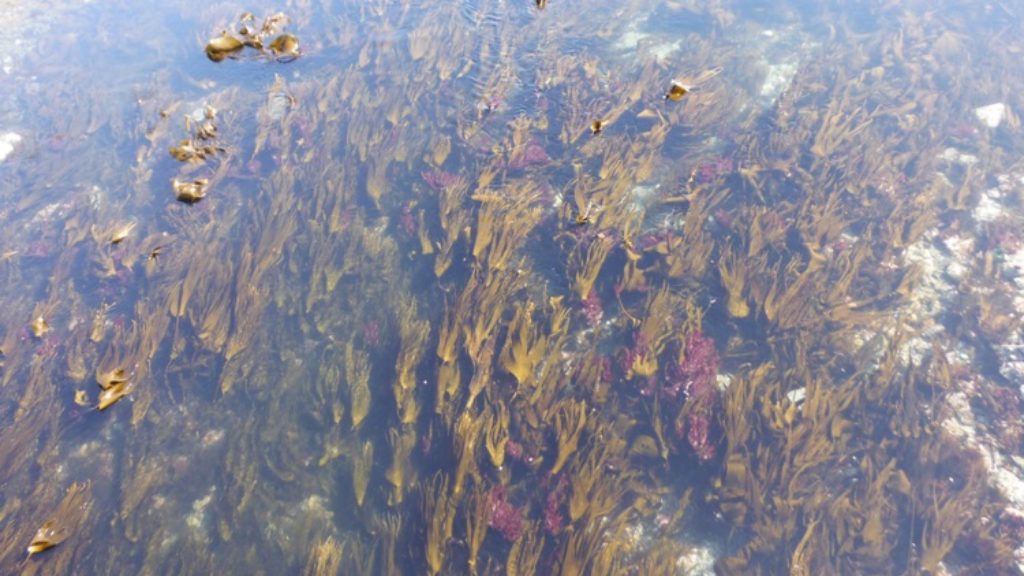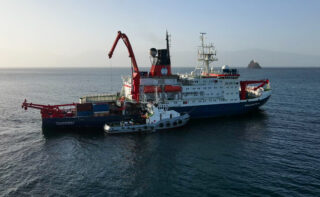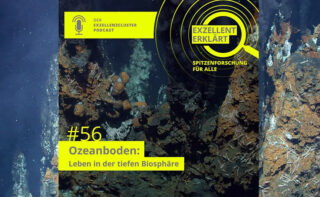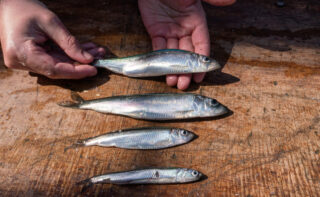
Improving carbon sequestration in coastal ecosystems
Research network sea4soCiety with participation of LUH investigates innovative approaches to climate regulation in Germany and the tropics
Coastal ecosystems such as mangrove forests, seagrass beds or algal forests store tremendous amounts of greenhouse gases from the atmosphere. However, the natural potential of carbon sequestration in these vegetation-rich coastal ecosystems can still be greatly improved: This is the goal of the sea4soCiety research network, which is funded by the German Federal Ministry of Education and Research (BMBF). By absorbing carbon, these coastal areas make a crucial contribution to slowing climate change. Maritime ecosystems can store significantly more carbon than forests on land. The total carbon stored in coastal ecosystems is referred to as blue carbon.
sea4soCiety wants to investigate how the potential for carbon sequestration in these coastal areas can be increased, for example by expanding the area. To this end, innovative and socially accepted approaches are to be developed in the three-year funding phase until 2024. Nine research institutes have joined forces (coordination: Prof. Dr. Martin Zimmer, Leibniz Center for Tropical Marine Research – ZMT). Leibniz Universität Hannover (LUH) is involved with the Ludwig Franzius Institute for Hydraulic and Estuarine and Coastal Engineering. The research network will investigate and assess the blue carbon storage capacity in four different types of coastal ecosystems – seagrass meadows, mangroves, algal forests and salt marshes – on the German North Sea and Baltic Sea coasts, in the Caribbean and on Indonesian coasts.
In the project, the scientists at the Ludwig Franzius Institute are focusing on how stable these ecosystems will be when more frequent and stronger storms and waves occur due to climate change. How persistent will this resource remain in the future? They are also researching co-uses, such as whether algal forests or seagrass beds can reliably act as breakwaters. “We are planning field campaigns in Germany and in the tropics, but we are also bringing plants into the lab,” explains PhD Maike Paul of the Ludwig Franzius Institute.
The focus of the Hanover researchers is on brown algae and tropical seagrass, which is still quite unexplored in contrast to European seagrass. “Among other things, we’re looking at current conditions,” Paul says. These measurements can provide information on which currents these plants can survive. For example, he says, understanding the conditions under which small plants survive is important for new colonizations. “We want to study these stress limits in the laboratory.” The plants will be experimentally acclimatized to climatic conditions that occur in the future. However, the first field campaign in brown algae forests near Helgoland is planned for summer 2022, with the participation of Bremen University and Kiel University with their research vessel.
Other partners in the sea4soCiety project are investigating further sub-aspects of improving the natural potential of blue carbon sequestration. For example, the University of Hamburg is conducting participatory research on the social acceptance of measures in coastal ecosystems.
sea4soCiety is part of the research mission “Marine Carbon Sinks in Decabonization Pathways (CDRmare)” of the German Marine Research Alliance (DAM). The goal is to further explore the oceans as carbon sinks. In total, around 200 researchers in six collaborative projects are investigating how the climate regulating processes of the ocean can be strengthened in the future. More information on the research mission at http://www.allianz-meeresforschung.de/news/klimawandel-mit-ozean-effektiver-begrenzen/ and at https://cdrmare.de/
ContaCt
PhD Maike Paul Ludwig-Franzius-Institute
Tel.: +49 511 762 2584 E-Mail: mailto:paul@lufi.uni-hannover.de
Leibniz Universität Hannover Communication and Marketing
Tel.: +49 511 762 – 5355 E-Mail-Adresse: kommunikation@uni-hannover.de
Header-Foto: Maike Paul / LUH
Newsletter
Always up to date with the DAM newsletter. (German only)



